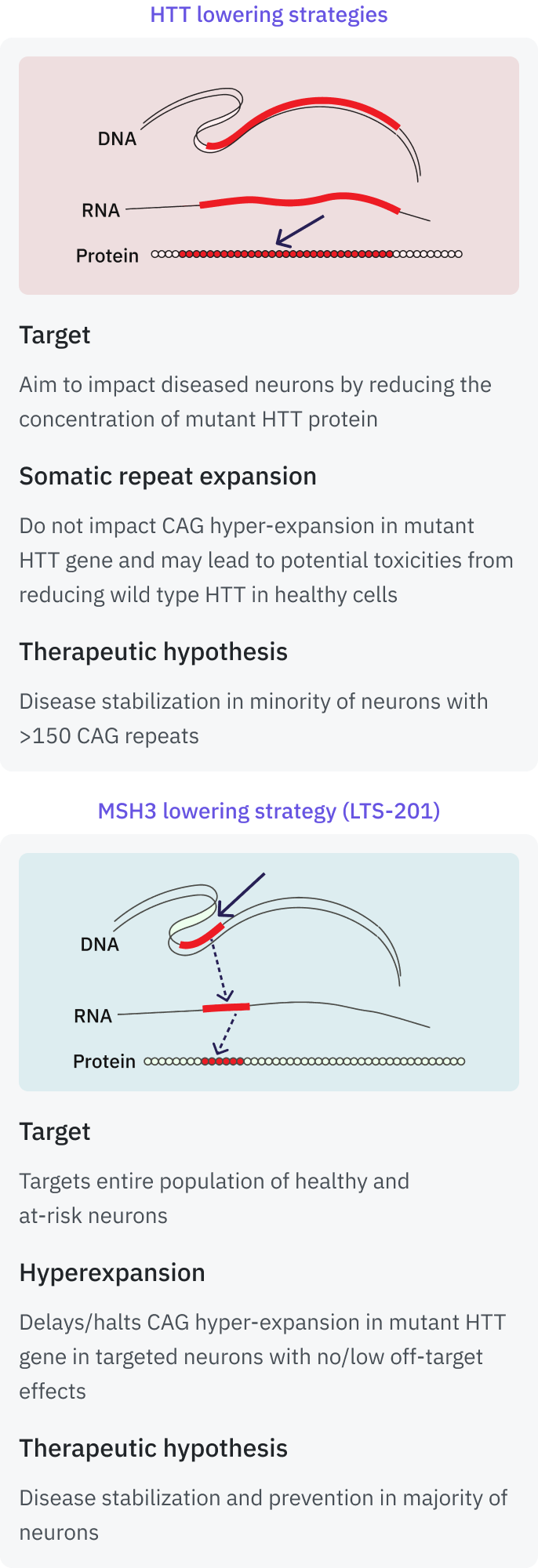Huntington’s disease (“HD”) is caused by mutations in the huntingtin (HTT) gene leading to >39 CAG expansions. Human genetic data reveal that over time the CAG expansions grow to >150 CAGs, which causes neuronal death and leads to Huntington’s disease symptoms. The expansion is caused by a protein called MSH3. Latus aims to reduce MSH3 expression to target Huntington's disease at its start.
“Huntington's disease remains a devastating, incurable genetic brain disease, for which we desperately need effective interventions. A breakthrough would be transformative for affected patients and families worldwide.”
“Caring for one person with HD is difficult enough. However, the even more appalling aspect of HD, is that one could be caring for more than one person or one generation with HD at the same time. I found myself caring for both my husband and my younger daughter, with JHD, at the same time...all the while knowing that my older daughter was gene positive and at some point I would be helping to care for her as well. The physical, emotional, and financial toll that this has taken on me...and so many other HD families is a burden that no one should have to carry. I worried about how I was going to do it all...take care of my loved ones, work, maintain a house, and keep myself healthy. At times, it felt like I was climbing a mountain, without ever reaching the peak.”
Early treatment with our LTS-201 gene therapy may delay or even halt Huntington’s disease progression


Our proprietary computational model predicts substantial therapeutic effects from reducing somatic instability for the vast majority of Huntington’s disease patients (ASGCT, 2025)
Our experimental data support deep MSH3 knockdown with our investigational gene therapy, yielding reductions in somatic instability in cellular and animal models of Huntington’s disease